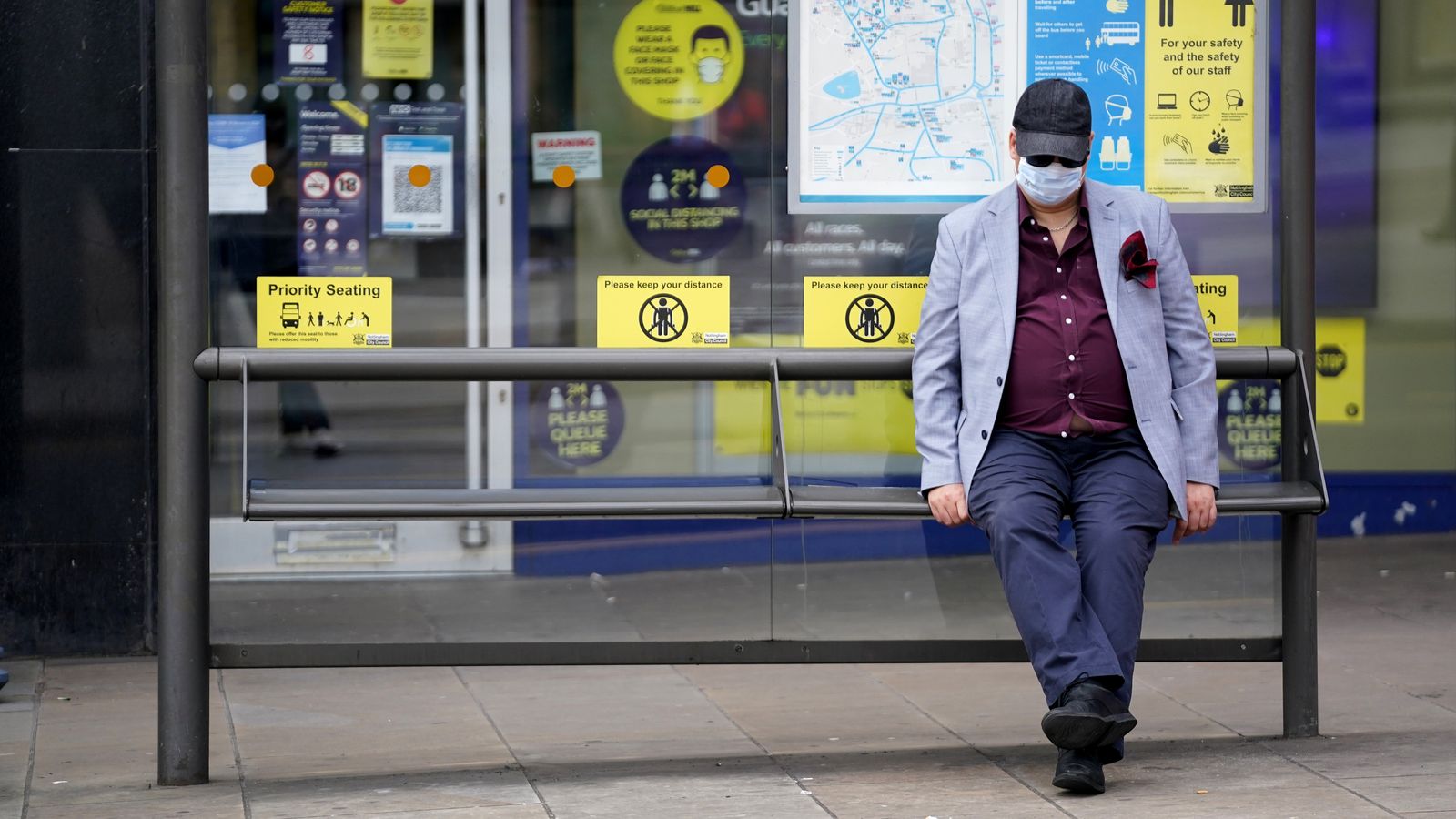The UK has little “headroom” for rising coronavirus cases before the NHS becomes “heavily stressed”, an expert has warned.
Professor Neil Ferguson – a member of the Scientific Advisory Group for Emergencies (SAGE) – told MPs that levels of transmission in the UK are currently far higher than in other countries.
At present, about 600 people are being admitted to hospital with COVID-19 every day. He believes the NHS may struggle to cope if this doubles to 1,200 in the winter months.
Live coronavirus updates from the UK and around the world
The government has previously said that mandatory face masks could return, COVID passports could be introduced and people could be told to work from home once again if pressure on the NHS needs to be alleviated.
Speaking to the all-party group on coronavirus, Prof Ferguson said: “We are starting with quite a high incidence and so we don’t have very much headroom for increases.
“If we compare, for instance, incidence of COVID cases per day in France, Germany, Spain, Italy and Portugal, there is a much lower level than us, so they can afford to see something of a surge of transmission, which they may well, without unduly stressing the health system.”
COVID-19: UK records 33,869 new cases and 166 more coronavirus-related deaths, daily figures show
COVID-19: Over 100,000 children out of school with confirmed coronavirus last week
COVID-19: Pfizer-BioNTech vaccine effectiveness wanes to 47% against infection after six months
The SAGE member went on to warn, “we are much closer to the limit of what the NHS can cope with”.
Please use Chrome browser for a more accessible video player
Prof Ferguson’s modelling was instrumental when the UK first went into lockdown in March 2020, but he said there is a high level of unpredictability when it comes to what will happen this winter.
He added: “We could see continued flat incidence, even slow decline if we get boosters out quickly.
“So it’s not guaranteed we will see a large winter surge by any means, but we can’t afford, at the current time, to have too much of a winter surge before really the NHS is very heavily stressed.”
The professor said that, given a political decision has been made to “live with COVID”, keeping a close eye on the data will be crucial.
“The lesson we have learned is that if you start seeing an upward trend and that is sustained for a period of time, then you need to get ahead of it,” he added.
Please use Chrome browser for a more accessible video player
Prof Ferguson also said that he had been more content with the timeliness of the government’s interventions to curb the spread of coronavirus since last December.
He said people in the UK are not having the same level of contact as they were before the pandemic, which is helping the situation.
However, the professor pointed to data that suggests the UK is now behind Spain and Portugal – and probably France and the Netherlands – in terms of population immunity.
He added: “I personally think it’s unlikely we’ll see a very large wave comparable to what we saw in the second wave last year, but we could still see quite a substantial wave of transmission, and the real challenge will be the extent to which that stresses the NHS, where capacity is limited.”
When it comes to the long-term view, Prof Ferguson said he believes the UK will see seasonal surges of transmission that will “challenge the health system on top of flu and everything else”.
“Whether we need in some years to come to rely on some degree of mitigation beyond just vaccination remains to be seen,” he said.
Government data released on Monday showed that the UK had recorded 35,077 new COVID-19 cases and a further 33 coronavirus-related deaths in the latest 24-hour period.
By comparison, 37,960 cases and 40 deaths were recorded over the same period one week earlier.
The number of people in hospital with COVID-19 stood at 6,556 – down from 6,905 seven days earlier – with 805 of those on ventilators.






















